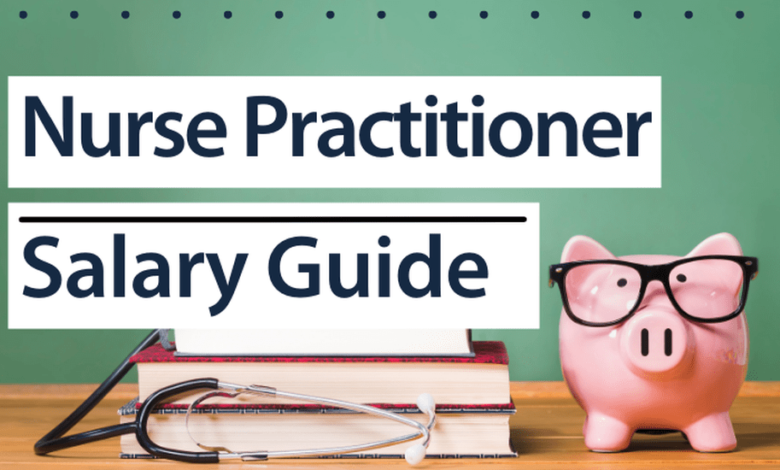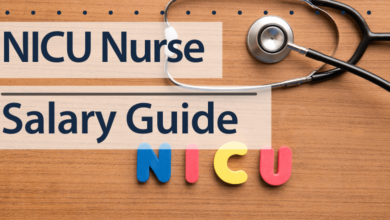How Much Do NPs Make?


The average nurse practitioner salary is $121,610, according to the U.S. Bureau of Labor Statistics, as of May 2021. That means that nurse practitioners make more than double the average annual salary for all other occupations.
In addition to being professionally and emotionally gratifying, becoming a nurse practitioner provides the security of knowing you’ve chosen a career with tremendous job security that is financially rewarding.
Even those compensated at the lowest end of the salary range for nurse practitioners make $87,340, much higher than the average national income. On the other hand, the salary for a nurse practitioner on the high end of the range can reach up to $165,240, per the BLS.
For the last 23 years, the Clinical Advisor’s Nurse Practitioner and Physician Assistant Salary Survey has been the gold standard for NPs to determine the salaries of others in their profession. Here’s what they found out about nurse practitioner salaries in the most recent (2022) survey:
Income and Satisfaction
- 48.6% of NPs reported earning a higher salary compared to the previous year
- 49.5% of NPs reported earning more income due to the COVID-19 pandemic
- 37.9% of NPs reported earning less income due to the pandemic
- 35.4% of NPs reported feeling “satisfied” or “very satisfied” with their compensation
- The 6.1% of respondents who felt “very satisfied” with their salary earned the most on average ($141,889)
Average Salaries
- The average nurse practitioner salary was $117,054 compared to $112,979 in 2021
- NPs working in hospitals earned the most per year ($125,682); NPs at schools/universities earned the least ($106,250)
- NPs working in internal medicine/family medicine/primary care earned an average of $110,920
Regional Distribution
- The majority of NP respondents worked in the South (37.9%)
- NPs in the West reported the highest average salary ($130,410)
- Most NPs worked in urban areas (41.7%) and suburban areas (35.7%)
Payscale.com reports the average salary of a nurse practitioner as $101,288 or $55 per hour. But, an annual NP salary may vary depending on years of experience:
- Less than 1 year of experience: Average annual salary of $97,830
- 1 to 4 years of experience: Average annual salary of $102,806
- 5 to 9 years of experience: Average annual salary of $107,691
- 10 to 19 years of experience: Average annual salary of $114,241
- 20 years of experience: Average annual salary of $112,163
Show Me Nurse Practitioner Programs
Many factors impact the salary of a nurse practitioner. However, the largest variations are due to geography. Learn how much you can make as a nurse practitioner, depending on the state you practice in:
According to the Bureau of Labor Statistics, these states have the highest average salary for a nurse practitioner:
- California – $158,130 per year
- New Jersey – $143,250
- Massachusetts – $138,700
- Oregon – $136,250
- Nevada – $136,230
In general, metropolitan areas will have higher median wages than suburban or rural areas because of their high living costs. See how the average nurse practitioner salary by city compares to nonmetropolitan areas, according to BLS reports:
- San Jose-Sunnyvale-Santa Clara, CA – $199,630
- San Francisco-Oakland-Hayward, CA – $190,070
- Napa, CA – $189,190
- Vallejo-Fairfield, CA – $180,990
- New York-Newark-Jersey City, NY-NJ-PA – $170,320
- Eastern Sierra-Mother Lode Region of California – $141,910
- Central Missouri nonmetropolitan area – $141,880
- North Coast Region of California nonmetropolitan area – $140,650
- North Valley-Northern Mountains Region of California nonmetropolitan area – $138,740
- Nevada nonmetropolitan area – $137,580
>> Related: Top Online Nurse Practitioner Programs
Your workplace will also impact your nurse practitioner salary. Take a look at how an NP salary can change depending on where you work from the most recent BLS data:
- Home Health Care Services – $148,960
- Vocational Rehabilitation Services – $139,640
- Business, Professional, Labor, Political, and Similar Organizations – $137,310
- Grantmaking and Giving Services – $137,300
- Psychiatric and Substance Abuse Hospitals – $134,540
Show Me Nurse Practitioner Programs
When prospective nurse practitioners plan their educational path, one of the most critical decisions they must make is about their specialty area.
The American Association of Nurse Practitioners 2020 National Workforce Survey indicates that most nurse practitioners opt for the Family or Adult Nurse Practitioner title. However, those who choose other nurse practitioner specialties may earn higher salaries.
| Specialty | Salary | |
| General Nurse Practitioner | $121,548 | |
| Family Nurse Practitioner | $105,089 | |
| Adult-Gerontology Nurse Practitioner | $104,127 | |
| Psychiatric Nurse Practitioner | $116,454 | |
| Pediatric Nurse Practitioner | $116,178 | |
| Acute Care Nurse Practitioner | $120,228 | |
| Women’s Health Nurse Practitioner | $114,688 | |
| Orthopedic Nurse Practitioner | $122,721 | |
| Emergency Nurse Practitioner | $130,855 | |
| Neonatal Nurse Practitioner | $135,023 |
Source: Salary.com
Nurse Practitioner Salary by State
| State | Annual Mean Salary |
| Alabama | $106,610 |
| Alaska | $116,390 |
| Arizona | $121,410 |
| Arkansas | $107,110 |
| California | $158,130 |
| Colorado | $116,440 |
| Connecticut | $131,490 |
| Delaware | $120,570 |
| District of Columbia | $131,270 |
| Florida | $110,310 |
| Georgia | $115,440 |
| Hawaii | $128,310 |
| Idaho | $117,720 |
| Illinois | $122,310 |
| Indiana | $121,730 |
| Iowa | $128,180 |
| Kansas | $111,670 |
| Kentucky | $109,290 |
| Louisiana | $118,210 |
| Maine | $118,300 |
| Maryland | $119,650 |
| Massachusetts | $138,700 |
| Michigan | $113,780 |
| Minnesota | $128,160 |
| Mississippi | $117,260 |
| Missouri | $113,180 |
| Montana | $119,960 |
| Nebraska | $118,970 |
| Nevada | $136,230 |
| New Hampshire | $125,780 |
| New Jersey | $143,250 |
| New Mexico | $129,560 |
| New York | – |
| North Carolina | $114,450 |
| North Dakota | $113,940 |
| Ohio | $117,440 |
| Oklahoma | $121,740 |
| Oregon | $136,250 |
| Pennsylvania | $120,550 |
| Rhode Island | $125,250 |
| South Carolina | $109,130 |
| South Dakota | $115,610 |
| Tennessee | $99,330 |
| Texas | $124,660 |
| Utah | $115,610 |
| Vermont | $116,610 |
| Virginia | $116,980 |
| Washington | $135,590 |
| West Virginia | $106,790 |
| Wisconsin | $121,210 |
| Wyoming | $115,230 |
Source: BLS, Data extracted September 19, 2023
We asked the Nurse.org social community whether or not they thought becoming a Nurse Practitioner was worth the investment of time and money for the salary increase; here’s what they had to say:
- “This is a hard conversation. Is it worth the debt no, is it worth the debt yes! You can’t compare RN money to NP money. As a DNP I make more working 9-5 off weekends, but there is no room to make one dollar more than what is offered not unless your employee offers productivity. (I don’t want to work like that). So now this is when RN’s make more because they work more “total hours”. Or “have another job”. I say go for it and don’t worry about the debt or the money. It’s worth the Autonomy.” —kyuraesthetics
- “I have always worked in a clinic as an NP. Other than the actual cost of school and the possibility of a slightly less flexible schedule, I can’t think of any cons. I’ve never regretted my decision. My current schedule is extremely flexible, so that does exist; it just may not be as easy to find in the beginning.” — the.renegade.np
- “I am in DNP-FNP school right now. I made the decision to become a Nurse Practitioner so I can make changes that would benefit the nursing community and the patients we serve. There is no price tag when it comes to years of injustice and frustration to do what is right for humanity and fighting systems that don’t help human beings. I’ve been an RN in acute care for over 16 years.” — nursenarcy
If you want to increase your nurse practitioner salary, you have options. Here are just three ways you can start earning more as an NP:
Certifications help increase your NP salary because well-paid positions often require them. If you want to know which certifications can help you earn more, look at listings for jobs you want at the salary you desire.
Take note of which credentials show up time and time again, then pursue them. Once you complete the certifications and put them on your nursing resume, you can work on getting those jobs and upgrading your nurse practitioner salary.
The salary of a nurse practitioner can increase with additional duties. NPs who take on administrative duties, like working as a director or manager, on top of their clinical responsibilities often report higher base salaries.
Keep in mind that without a formal promotion, extra duties won’t automatically increase your NP pay. In those cases, you’ll want to use these duties (and your performance) as leverage during salary negotiations. Pay attention to your impact so you can argue for higher compensation with empirical data.
Additionally, pursuing additional education and earning a Doctor of Nursing Practice (DNP) degree can significantly impact your nurse practitioner salary. According to Payscale, nurses with a Doctor of Nursing Practice (DNP) degree earned an average base salary of $111K as of June 2023. Nurses with a Master of Science in Nursing (MSN) degree, on the other hand, earned an average salary of $102k, $9k less per year than the DNP degree.
Curious about what other healthcare professions pay? Check out these salary guides:

















